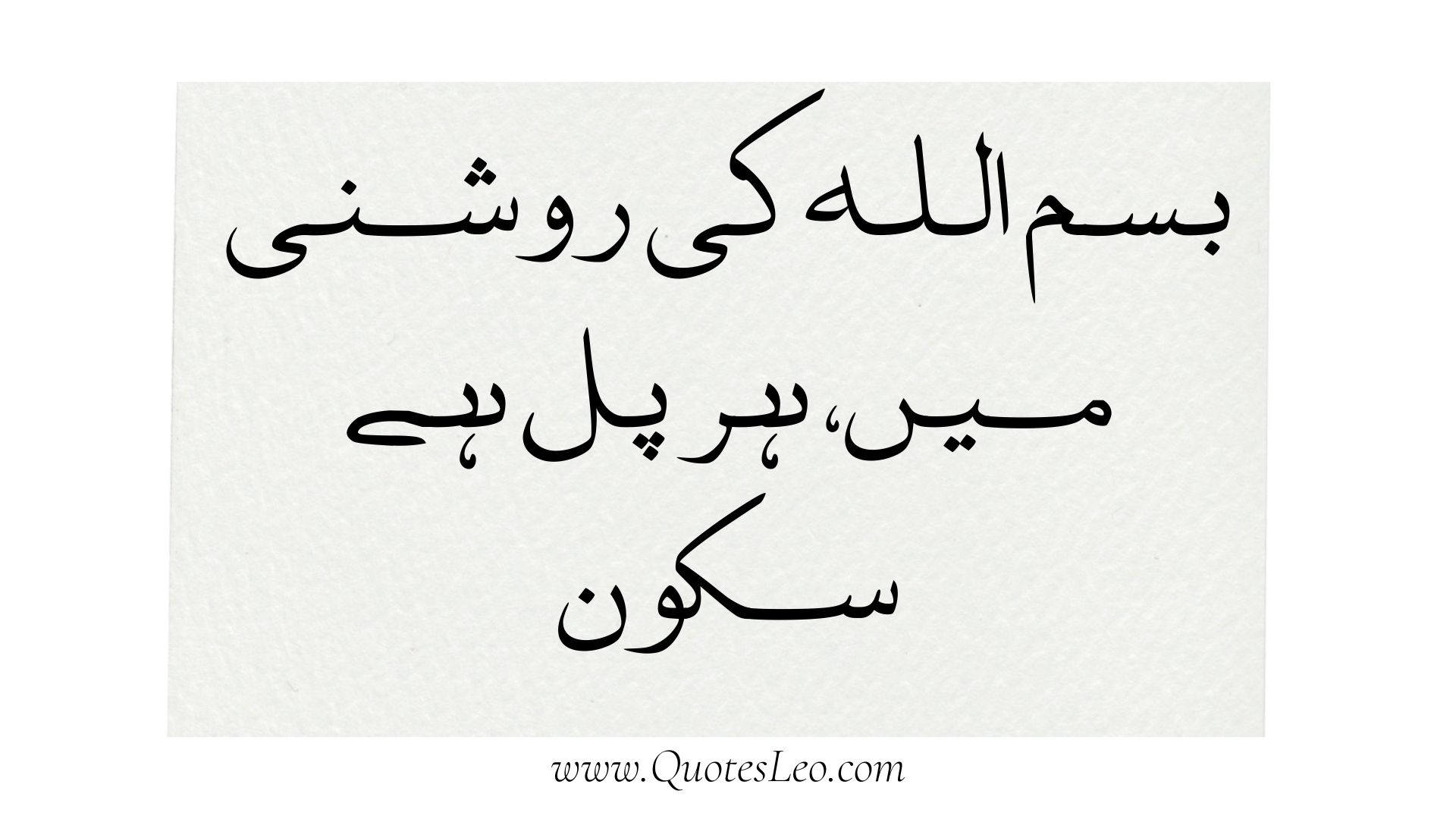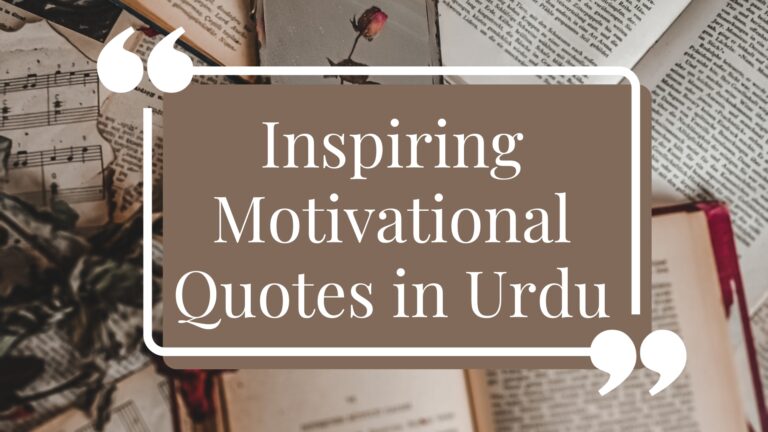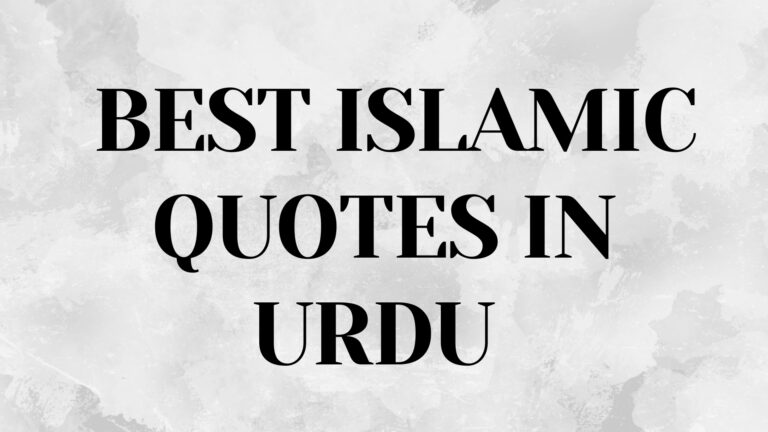Poetry, often referred to as the language of the heart, has held a special place in the cultural and literary traditions of various societies throughout history. Among the rich tapestry of poetic expressions, Islamic poetry in Urdu stands out as a remarkable fusion of spirituality, devotion, and linguistic artistry.
The seamless blend of the profound teachings of Islam with the melodic cadence of the Urdu language creates a mesmerizing form of expression that resonates deeply with the emotions and faith of its audience.
The Eloquent Dance of Words: Urdu Poetry
Urdu, a language born out of cultural exchange and historical amalgamation, lends itself beautifully to the realm of poetry. Its roots can be traced back to the Mughal courts, where it evolved as a language of refinement, art, and expression. With a script that combines elements of Persian and Arabic, Urdu became a potent medium for conveying complex thoughts and emotions.
The Ghazal: A Jewel in Urdu’s Crown
One of the most cherished forms of Urdu poetry is the ghazal. This lyrical expression of emotions, often centred around themes of love, spirituality, and longing, provides an ideal canvas for Islamic poets to convey their devotion to the Divine.
The ghazal typically consists of rhyming couplets, known as sher, each standing as an independent verse yet contributing to the overall theme of the poem.
Let us immerse ourselves in the beauty of Urdu poetry with a ghazal that celebrates the mystical journey of a soul towards its Creator:
In the Radiance of Bismillah
بسم الله کی روشنی میں، ہر پل ہے سکون

(Bismillah ki roshni mein, har pal hai sukoon)
In the radiance of Bismillah, every moment finds tranquility
دل کی حیرتوں کو، کر رہا ہوں میں سمجھوں

(Dil ki heratoun ko, kar raha hoon mein samjhon)
Amidst the wonders of the heart, I am trying to understand
روشنی ہے ایک شمع کی، جو جلتی ہے ہمیشہ

(Roshni hai ek shama ki, jo jalti hai hamesha)
A candle’s light, forever aflame
Islamic Themes in Urdu Poetry
Islamic poetry in Urdu transcends the boundaries of earthly desires and delves into the realm of the spiritual. The essence of Tawhid (the oneness of God), the teachings of the Quran, and the life of the Prophet Muhammad (peace be upon him) serve as enduring themes that shape the verses of poets.
The Love for the Divine
The soul’s yearning for a deeper connection with the Divine is a central theme in Islamic poetry. Poets express their love for Allah in ways that mirror the intensity of romantic love. Just as lovers pine for their beloved, these poets yearn for closeness to their Creator.
Leave Behind the Temptations of this World
یہ دنیا بھی ملی چھوڑ دو، آخرت کو گلے لگا لو

(Yeh dunya bhi mili chhod do, aakhirat ko galey laga lo)
Leave behind the temptations of this world, embrace the Hereafter
Reflections on Life’s Journey
Islamic poetry in Urdu often serves as a mirror to life’s journey, emphasizing the temporary nature of this world and the eternal nature of the afterlife. This theme encourages believers to focus on their spiritual growth and prepare for the Hereafter.
Contemplating Death
موت کی طرف رہ رہ کر، زندگی کی یہ راہ

(Maut ki taraf rah rah kar, zindagi ki yeh raah)
Journeying towards death, on the path of life
The Influence of Sufism
Sufism, the mystical dimension of Islam, has played a significant role in shaping Urdu poetry. Sufi poets delve into the depths of spirituality, often using allegorical language to convey their experiences of divine love and unity.
I Am Also a Dream
میں بھی ایک خواب ہوں، تو بھی ایک خواب ہے

(Main bhi ek khwab hoon, tu bhi ek khwab hai)
I am also a dream, and so are you
Conclusion
In the realm of Urdu poetry, the fusion of Islamic spirituality with the beauty of the language itself creates a tapestry that speaks to the hearts of millions. Through ghazals, nazms, and various poetic forms, Islamic poets convey their devotion, reflect on the transient nature of life, and share their profound spiritual experiences.
The verses serve not only as a source of inspiration but also as a means of deepening one’s understanding of faith and existence. Just as the great poets of the past have gifted us with these treasures, the tradition of Islamic poetry in Urdu continues to thrive, enriching our souls with its timeless wisdom and poetic grace.








